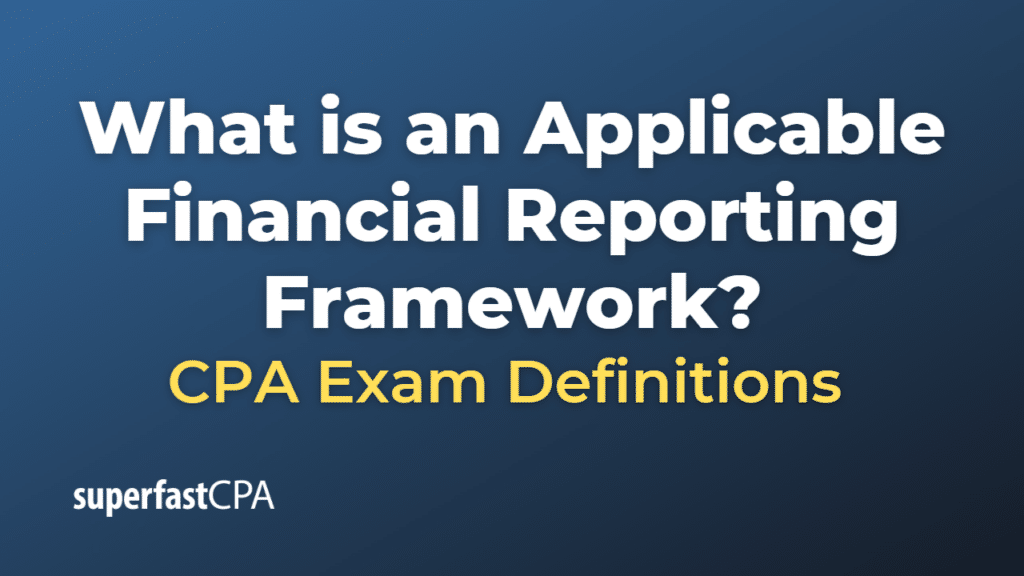Applicable Financial Reporting Framework
An applicable financial reporting framework (AFRF) is a set of accounting principles, standards, and guidelines that companies use to prepare and present their financial statements. The framework provides a standardized approach to financial reporting, ensuring consistency, transparency, and comparability across different companies and industries.
The choice of an applicable financial reporting framework often depends on the jurisdiction in which a company operates, its size, the nature of its activities, and the requirements of regulators or stakeholders. Some of the most common financial reporting frameworks include:
- U.S. Generally Accepted Accounting Principles (U.S. GAAP): A widely-used set of accounting rules and standards used by companies in the United States.
- International Financial Reporting Standards (IFRS): A set of global accounting standards developed by the International Accounting Standards Board (IASB) and used by companies in many countries around the world.
- National GAAP: Accounting principles and standards specific to individual countries, which may be used by companies operating solely within those jurisdictions.
Companies must choose a financial reporting framework that is appropriate for their specific circumstances and meets the requirements of their stakeholders, such as investors, creditors, and regulatory authorities.
Example of an Applicable Financial Reporting Framework
Let’s consider a hypothetical example of two companies, one based in the United States and the other in Germany, to illustrate the use of different applicable financial reporting frameworks.
Company A is a U.S.-based technology company that is publicly traded on the New York Stock Exchange. In this case, the company would be required to follow the U.S. Generally Accepted Accounting Principles (U.S. GAAP) as its applicable financial reporting framework. This is because U.S. GAAP is the standard accounting framework for public companies in the United States, and compliance is required by the Securities and Exchange Commission (SEC).
Company B is a German-based manufacturing company that is publicly traded on the Frankfurt Stock Exchange. As a European company, it would be required to follow the International Financial Reporting Standards (IFRS) as its applicable financial reporting framework. This is because IFRS is the standard accounting framework for public companies within the European Union, and compliance is required by the European Securities and Markets Authority (ESMA).
By adhering to their respective applicable financial reporting frameworks, both companies ensure that their financial statements are prepared and presented in a consistent, transparent, and comparable manner, allowing stakeholders to make informed decisions based on accurate and reliable financial information.













